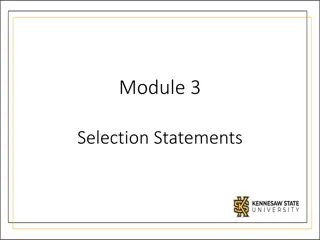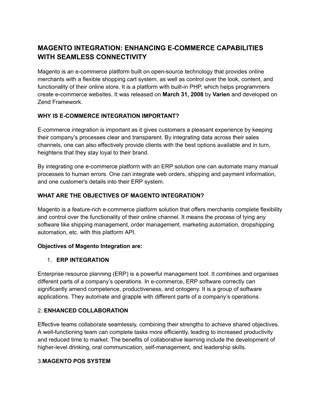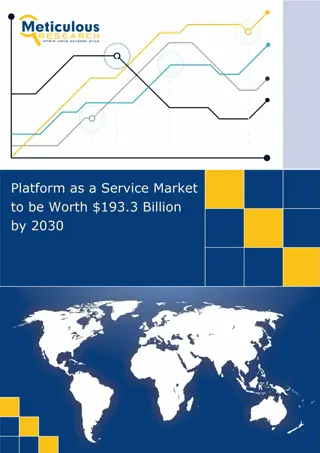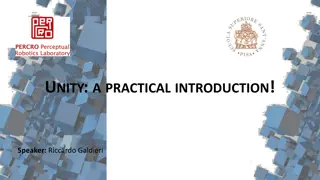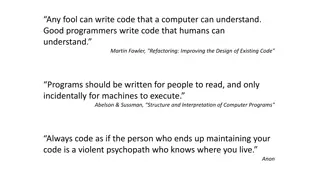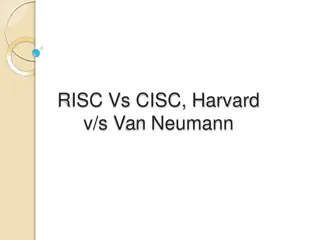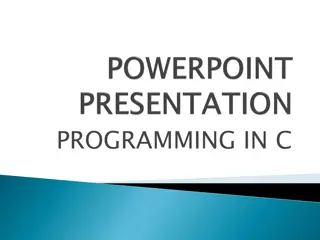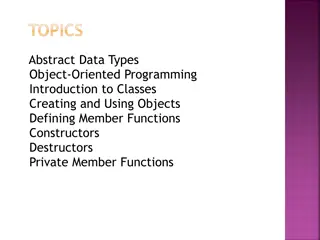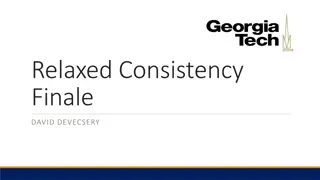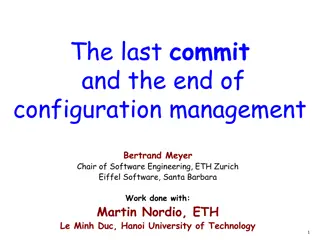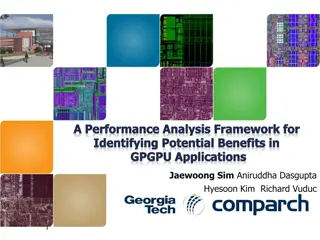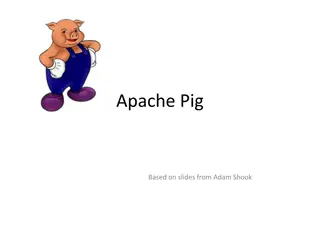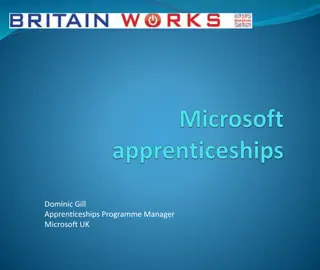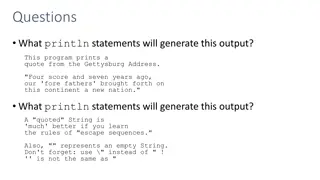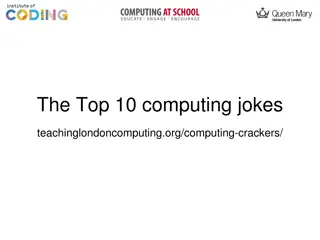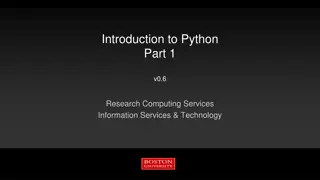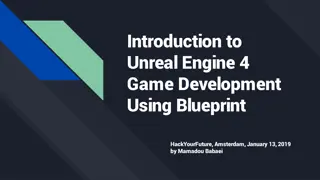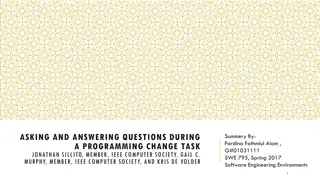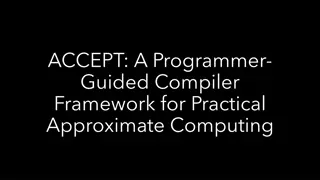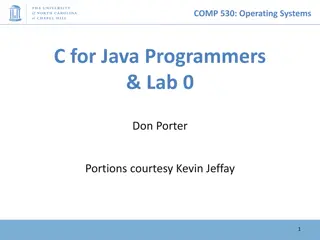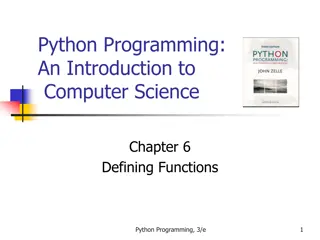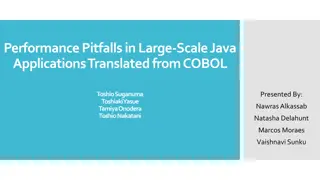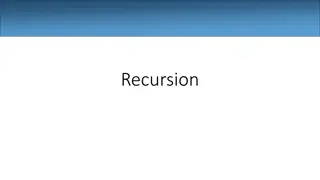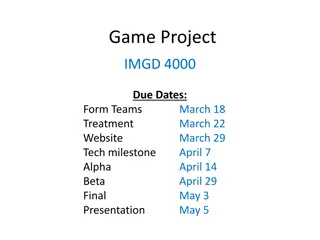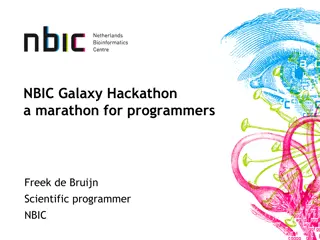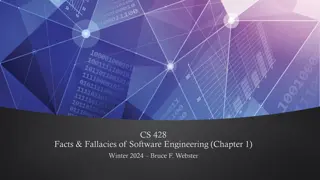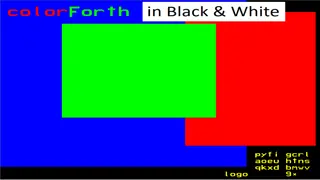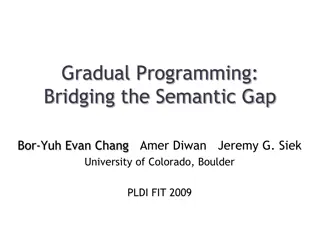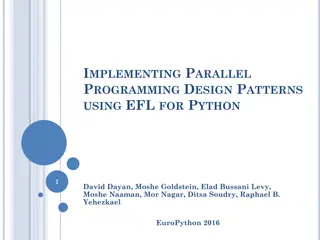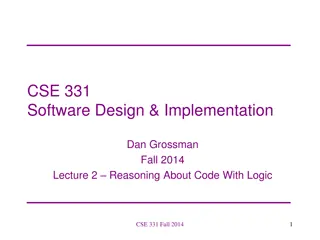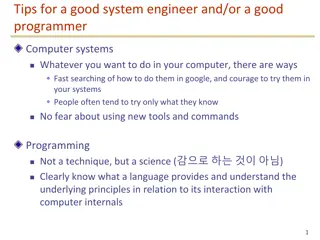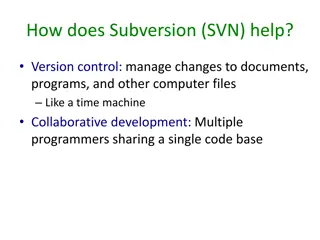Introduction to Selection Statements in Programming
Selection statements in programming allow for executing specific blocks of code based on certain conditions. They provide a way to control the flow of a program by evaluating Boolean expressions. The use of if, if-else, if-else-if, and switch statements enables programmers to create multiple paths o
5 views • 53 slides
MAGENTO INTEGRATION: ENHANCING E-COMMERCE CAPABILITIES WITH SEAMLESS
Magento is an e-commerce platform built on open-source technology that provides online merchants with a flexible shopping cart system, as well as control over the look, content, and functionality of their online store. It is a platform with built-in PHP, which helps programmers create e-commerce web
2 views • 4 slides
Accelerating Shift to Cloud Computing in Regulated Industries is Driving
Platform-as-a-Service (PaaS) is a set of cloud-based services that enable business users and developers to build applications at a higher speed than on-premise solutions. PaaS provides a flexible, cost-effective cloud platform for developing, running, and managing applications. It includes infrastru
0 views • 4 slides
Introduction to Unity Game Engine: A Practical Overview
Unity is a versatile multi-genre game engine widely used in game development. Founded in 2005 in Denmark, it has a large community, extensive documentation, and user-friendly interface. Unity is free for personal use and offers customization options for both artists and programmers. This practical i
0 views • 11 slides
Programming Best Practices and Software Design Guidelines
Good programmers focus on writing code that is clear and maintainable for humans, not just for machines. This collection of insights emphasizes the importance of writing readable, efficient, and reusable code. It covers topics such as functions, variable naming, and software design principles for be
1 views • 11 slides
Contrasting RISC and CISC Architectures
Contrasting RISC (Reduced Instruction Set Computing) and CISC (Complex Instruction Set Computing) architectures, the images and descriptions elaborate on their advantages and disadvantages, with a focus on multiplying two numbers in memory using a CISC approach. CISC processors aim to complete tasks
0 views • 35 slides
Introduction to Programming in C Language
C language is a procedural programming language developed by Dennis Ritchie in 1972. Known for its low-level access to memory, simple keyword set, and clean style, C is ideal for system programming tasks like operating system and compiler development. This article covers key aspects of C language, P
0 views • 12 slides
Introduction to Object-Oriented Programming and Data Abstraction
Introduction to object-oriented programming concepts including classes, objects, member functions, constructors, destructors, and abstract data types. Exploring the principles of abstraction in software development, passing objects to functions, and understanding the limitations of procedural progra
0 views • 47 slides
Scalable Causal Consistency for Wide-Area Storage with COPS
This paper delves into the importance of scalable causal consistency for wide-area storage with the COPS system. It explores desired properties such as availability, low latency, partition tolerance, and scalability within data centers. The document discusses the challenges of achieving consistency
0 views • 41 slides
Web Application Development and Programming CTE Program Overview
Viera High School offers a comprehensive CTE program in Web Application Development and Programming, taught by Mr. Dohmen. Students learn popular programming languages like Python, SQL, JavaScript, Java, C#, and C. The courses cover web programming, JavaScripting, and PHP programming, providing cert
3 views • 7 slides
Discussions on Programmers' Needs, Memory Models, and Consistency in Software Development
Today's discussions covered various topics including what programmers require, the debate on defining memory models for achieving Sequential Consistency (SC), considerations for data-race-free programs, and the performance trade-offs of weaker memory architectures. Insights into partial and relaxed
2 views • 22 slides
Evolution of Configuration Management in Software Engineering
Explore the evolution of configuration management in software engineering, highlighting key practices like cloud-based IDE, shared repositories, and unobtrusive configuration management. Understand the importance of modern best practices in software development, traditional vs. optimistic approaches
0 views • 20 slides
Dynamic Memory Management Overview
Understanding dynamic memory management is crucial in programming to efficiently allocate and deallocate memory during runtime. The memory is divided into the stack and the heap, each serving specific purposes in storing local and dynamic data. Dynamic memory allocators organize the heap for efficie
0 views • 31 slides
A Performance Analysis Framework for GPGPU Applications
This framework, GPUPerf, focuses on identifying potential benefits in GPGPU applications through performance analysis, modeling, and user-friendly metrics. It addresses the challenges programmers face in optimizing GPGPU code, providing guidance on program analysis and performance modeling. The fram
0 views • 26 slides
Introduction to Apache Pig: A High-level Overview
Apache Pig is a data flow language developed by Yahoo! and is a top-level Apache project that enables non-Java programmers to access and analyze data on a cluster. It interprets Pig Latin commands to generate MapReduce jobs, simplifying data summarization, reporting, and querying tasks. Pig operates
0 views • 57 slides
Microsoft UK Apprenticeships Programme Overview
Explore the Microsoft UK Apprenticeships Programme managed by Dominic Gill, offering a pathway into the IT industry, retraining opportunities, and support for companies to develop MS Certified staff. The programme features three unique flavours catering to different roles, such as Technical Support
0 views • 7 slides
Mastering Java Output Statements
Learn how to generate specific output by utilizing println statements in Java. Discover how to print quotes, handle escape sequences, and effectively use comments in your code. Enhance your programming skills with examples and explanations showcasing the importance of comments in understanding code
0 views • 21 slides
Active Learning for Inference and Regeneration of Computer Programs: A Data-driven Approach
Explore how active learning can enhance the process of inferring and regenerating computer programs that store and retrieve data. The research delves into the increasing trend of individuals learning programming and the complexities of computing environments. It highlights the challenges faced by bo
0 views • 48 slides
Top 10 Computing Jokes - Funny and Clever Tech Humor
Enjoy a collection of witty and amusing computing jokes that poke fun at programmers, cybernetics, math, and technology-related scenarios. From light-hearted puns to clever observations, these jokes are sure to tickle your funny bone and brighten your day. Dive into the world of tech humor with thes
0 views • 15 slides
Comparison of C vs Rust Programming Languages
C and Rust are programming languages known for their efficiency in resource-constrained environments. While C offers direct control over hardware and is favored by advanced programmers for its performance, Rust provides memory safety features that prevent common errors like null pointer dereferences
0 views • 50 slides
Python Tutorial and Resources for Research Computing Services
Explore Python tutorial resources and services offered by Research Computing Services for scientific programmers, data analysis, visualization, and more. Learn how to access Python for tutorials and installation instructions. Get started with Python for research computing today!
1 views • 64 slides
Introduction to Unreal Engine 4 Game Development
Unreal Engine 4 is a powerful game development tool used for creating a wide range of games, from 2D to VR simulations. It provides specialized tools for artists, designers, and programmers, enabling them to focus on the creative aspects of game development. With its high portability and availabilit
0 views • 35 slides
Programmer Questions and Tool Support During Code Evolution Tasks
This study investigates the types of questions programmers ask and how well existing tools support them during software evolution tasks. It introduces a catalog of 44 question types and discusses behaviors observed while answering these questions. The study highlights the gaps in tool support for pr
0 views • 11 slides
Procedural Decomposition and Static Methods in Programming
Understanding procedural decomposition and static methods is essential in programming to reduce redundancy, organize code effectively, and manage complexity. Procedural decomposition involves dividing a problem into methods, while static methods help in code reuse and managing complexity. By designi
0 views • 18 slides
ACCEPT: A Programmer-Guided Compiler Framework for Practical Approximate Computing
ACCEPT is an Approximate C Compiler framework that allows programmers to designate which parts of the code can be approximated for energy and performance trade-offs. It automatically determines the best approximation parameters, identifies safe approximation areas, and can utilize FPGA for hardware
0 views • 15 slides
Operating Systems in C for Java Programmers
This content delves into the intricacies of operating systems using C programming language, aimed at Java programmers. It covers basic syntax, data types, pointers, memory placement, function pointers, and more, providing a comprehensive overview with examples and explanations.
0 views • 23 slides
Introduction to Defining Functions in Python Programming
Understanding the importance of functions in Python programming, this chapter delves into defining new functions, function calls, and parameter passing. Functions help reduce code duplication, increase program modularity, and enhance program readability and maintenance. By creating named sequences o
0 views • 80 slides
Pitfalls in Large-Scale Java Applications Translated from COBOL
Uncovering the challenges in migrating legacy COBOL applications to Java, this presentation delves into the structural issues, performance bottlenecks, and translation problems encountered in the process. Highlighting the difficulties in maintaining and optimizing code, it emphasizes the need for sk
0 views • 25 slides
Introduction to Computer Science: Programming, Algorithms, and Technology Overview
Delve into the fascinating world of computer science with a comprehensive exploration of programming, algorithms, and technology. From foundational concepts like CPU architecture and logic units to practical languages such as Java and Python, this content covers a wide array of topics essential for
0 views • 6 slides
Exploring the Power of Recursion in Programming
Understanding recursion is essential for solving complex problems efficiently in programming. Recursion involves breaking down a big problem into smaller instances of the same problem, leading to elegant and concise code. By learning recursion, programmers gain a different perspective on problem-sol
0 views • 36 slides
IMGD 4000 Game Project: Overview and Team Formation Details
Create a game project using UE4 in a team of artists and programmers. Form teams with specific constraints and required elements. Important dates include milestones for alpha, beta, and final presentations. Detailed instructions provided for team formation, design constraints, and project overview.
0 views • 20 slides
Insights from NBIC Galaxy Hackathon: Building Community and Learning Experiences
NBIC Galaxy Hackathon, a marathon for programmers, brought together bioinformatics experts and programmers to collaborate on innovative projects. The event showcased the community-building efforts, technological advancements, and learning experiences gained through modifying Galaxy, a bioinformatics
0 views • 9 slides
Facts and Fallacies of Software Engineering: Chapter 1 Insights
Understanding the importance of quality programmers, the impact of team composition on project success, the fallacy of adding people to late projects, and the significance of a conducive working environment for productivity and quality in software engineering. Emphasizes the value of hiring and reta
0 views • 19 slides
Mastering Generics in Effective Java: A Practical Guide for Java Programmers
Explore the world of generics in Java through Joshua Bloch's guidance in "Effective Java". Learn the importance of avoiding raw types, leveraging parameterized types for type safety, handling mixing of generic and raw types, and implementing wildcards for flexible and typesafe coding. Enhance your J
0 views • 30 slides
Bridging the Conceptual Gap: Edsger Dijkstra's Insights
Edsger Dijkstra urged programmers to shorten the conceptual gap between static programs and dynamic processes, emphasizing the importance of clarity in source code for easy understanding and execution. Chuck Moore's colorForth, an attempt at using color to replace punctuation, ultimately faced limit
0 views • 33 slides
Bridging the Semantic Gap in Gradual Programming
Observing a disconnect between programmer intent and program meaning, Gradual Programming by Bor-Yuh Evan Chang, Amer Diwan, and Jeremy G. Siek explores tools' lack of knowledge in understanding programmers' priorities, hindering productivity and reliability. Through examples like iteration orders a
0 views • 8 slides
Implementing Parallel Programming Design Patterns Using EFL for Python
This presentation explores the motivation and objectives behind developing a common parallel programming approach, introducing the Embedded Flexible Language (EFL) for Python. The EFL programming model allows for a straightforward implementation of sequential and parallel executions to produce deter
3 views • 49 slides
Logical Reasoning in Software Design and Implementation
Logical reasoning in software development involves determining the truth of facts as a program runs under specific assumptions. This process complements testing by allowing programmers to reason about classes of inputs/states and verify program correctness. Hoare Logic is introduced as a method for
0 views • 35 slides
Essential Tips for Successful System Engineers and Programmers
Valuable insights for aspiring system engineers and programmers include embracing new tools and commands, understanding programming as a science, mastering algorithms, evaluating their efficiency, and adopting experimental approaches to analyze running times accurately.
0 views • 35 slides
The Benefits of Subversion (SVN) for Version Control and Collaborative Development
Subversion (SVN) acts as a time machine, allowing programmers to manage changes to documents and files efficiently. It enables collaborative development by facilitating multiple programmers to work on a single code base seamlessly.
0 views • 8 slides
